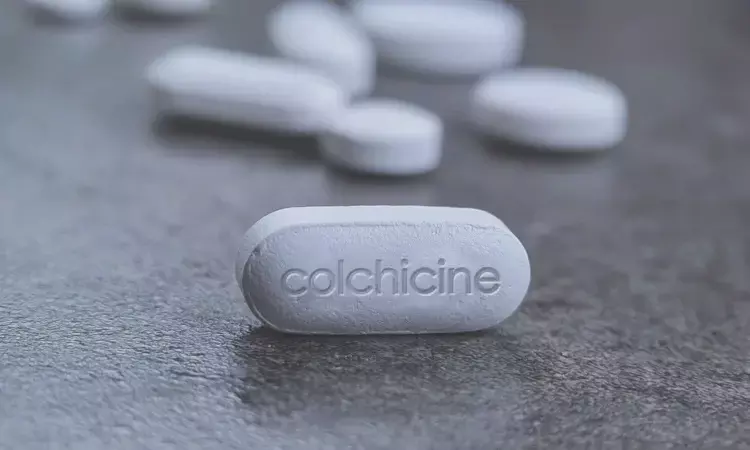- Home
- Medical news & Guidelines
- Anesthesiology
- Cardiology and CTVS
- Critical Care
- Dentistry
- Dermatology
- Diabetes and Endocrinology
- ENT
- Gastroenterology
- Medicine
- Nephrology
- Neurology
- Obstretics-Gynaecology
- Oncology
- Ophthalmology
- Orthopaedics
- Pediatrics-Neonatology
- Psychiatry
- Pulmonology
- Radiology
- Surgery
- Urology
- Laboratory Medicine
- Diet
- Nursing
- Paramedical
- Physiotherapy
- Health news
- Fact Check
- Bone Health Fact Check
- Brain Health Fact Check
- Cancer Related Fact Check
- Child Care Fact Check
- Dental and oral health fact check
- Diabetes and metabolic health fact check
- Diet and Nutrition Fact Check
- Eye and ENT Care Fact Check
- Fitness fact check
- Gut health fact check
- Heart health fact check
- Kidney health fact check
- Medical education fact check
- Men's health fact check
- Respiratory fact check
- Skin and hair care fact check
- Vaccine and Immunization fact check
- Women's health fact check
- AYUSH
- State News
- Andaman and Nicobar Islands
- Andhra Pradesh
- Arunachal Pradesh
- Assam
- Bihar
- Chandigarh
- Chattisgarh
- Dadra and Nagar Haveli
- Daman and Diu
- Delhi
- Goa
- Gujarat
- Haryana
- Himachal Pradesh
- Jammu & Kashmir
- Jharkhand
- Karnataka
- Kerala
- Ladakh
- Lakshadweep
- Madhya Pradesh
- Maharashtra
- Manipur
- Meghalaya
- Mizoram
- Nagaland
- Odisha
- Puducherry
- Punjab
- Rajasthan
- Sikkim
- Tamil Nadu
- Telangana
- Tripura
- Uttar Pradesh
- Uttrakhand
- West Bengal
- Medical Education
- Industry
Colchicine use tied to lower risk of chronic kidney disease: Study

Korea: Colchicine use may lower the risk of chronic kidney disease (CKD) progression, a recent study in the journal Rheumatology has found. CKD progression was defined as a ≥ 40% decrease from the baseline estimated glomerular filtration rate or the onset of kidney failure with replacement therapy.
Preclinical evidence has suggested protective effects of colchicine against kidney fibrosis, despite this, it is not known if colchicine could delay CKD progression in humans. To fill this knowledge gap, Seung Hyeok Han, Yonsei University, Seoul, Korea, and colleagues aimed to examine the association between long-term colchicine use and the risk of adverse kidney outcomes in CKD patients who were treated for hyperuricemia or chronic gout in a multicentre, nested, case-control study conducted in three Korean hospitals.
The study included patients aged ≥ 19 years; who had CKD G3–G4; and used drugs including colchicine, allopurinol, and febuxostat for hyperuricemia or chronic gout from April 2000–to October 2020. Patients with CKD progression were matched to controls based on follow-up time, age, and sex.
A total of 3085 patients with CKD progression were matched to 11715 control patients.
Based on the study, the researchers reported the following findings:
- Multivariate conditional logistic regression analysis showed that patients with ≥ 90 cumulative daily colchicine doses were associated with a lower risk of CKD progression (adjusted odds ratio [AOR], 0.77) than non-users.
- In the sensitivity analysis with matched CKD stages, the AOR was 0.77. This association was more pronounced in patients without diabetes or hypertension, and in patients with CKD G3.
To conclude, colchicine use is associated with a lower risk of adverse kidney outcomes in CKD patients with hyperuricemia, or chronic gout.
"Our findings warrant well-designed [randomized controlled trials] in the future to test the potential renoprotective effects of colchicine in CKD patients," according to Dr Han's team, including finding an optimal dose.
Colchicine interferes with microtubule polymerization and neutrophil function and has anti-inflammatory and anti-fibrotic effects, the researchers noted.
Hyung Woo Kim, Young Su Joo, Hae-Ryong Yun, Jae Young Kim, Jong Hyun Jhee, Yun Ho Roh, Jung Tak Park, Tae Ik Chang, Tae-Hyun Yoo, Shin-Wook Kang, Seung Hyeok Han, Colchicine use and the risk of CKD progression: A multicenter nested case–control study, Rheumatology, 2022;, keac077, https://doi.org/10.1093/rheumatology/keac077
Dr Kamal Kant Kohli-MBBS, DTCD- a chest specialist with more than 30 years of practice and a flair for writing clinical articles, Dr Kamal Kant Kohli joined Medical Dialogues as a Chief Editor of Medical News. Besides writing articles, as an editor, he proofreads and verifies all the medical content published on Medical Dialogues including those coming from journals, studies,medical conferences,guidelines etc. Email: drkohli@medicaldialogues.in. Contact no. 011-43720751


